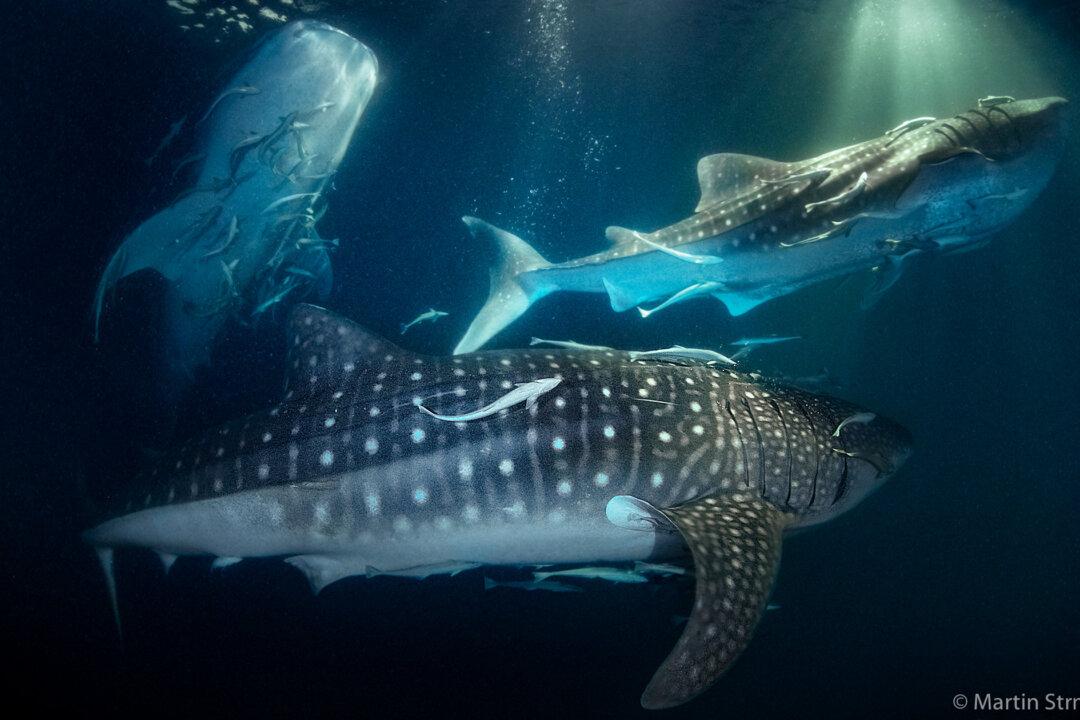One lucky photographer, Martin Strmiska, 41, who spends time photographing underwater paradises in the Maldives, captured the sight of a lifetime—a sight even experienced divers rarely witness.
While on an excursion diving with tourists last year, at around 10 or 11 p.m., they witnessed a feeding frenzy of approximately 20 whale sharks beside their boat. Such a concentration of whale sharks is seen seldom if ever.






